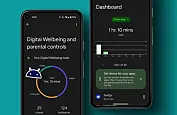
- Location-Based Users Statistics
- Turn off Location Tracking- Does that Help?
- Closing the Tracking Option for Android and iOS
- Cell Phone Location Tracker- Why are People allowing Themselves to be Tracked?
- Adam and Eve- Why Men Feel easier to use Location Tracking apps Than Women?
- Social Media Apps and People- How often are People are Using it?
- Privacy Concerns- How to Trust an app with Location Tracking Enabled?
- Verdict- Can apps that Track Locations be Trusted?
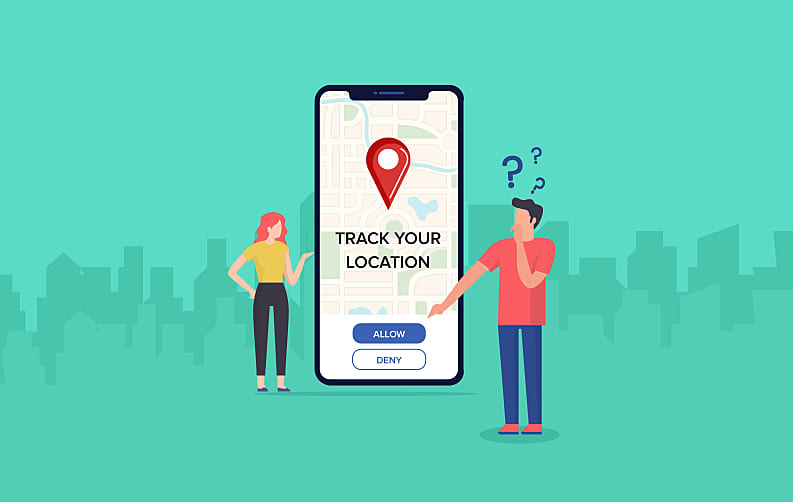
Owning a smartphone does bring the universe in your hand but have you ever asked, “Am I safe?” I’m sure you must’ve asked but did you mentally answer “Yes”?
It’s difficult with the increasing cybercrimes, including data theft that users are unable to place their reliability with a majority of applications. There are many such technologies that can fetch your personal data and one of them is ‘Location Tracking’.
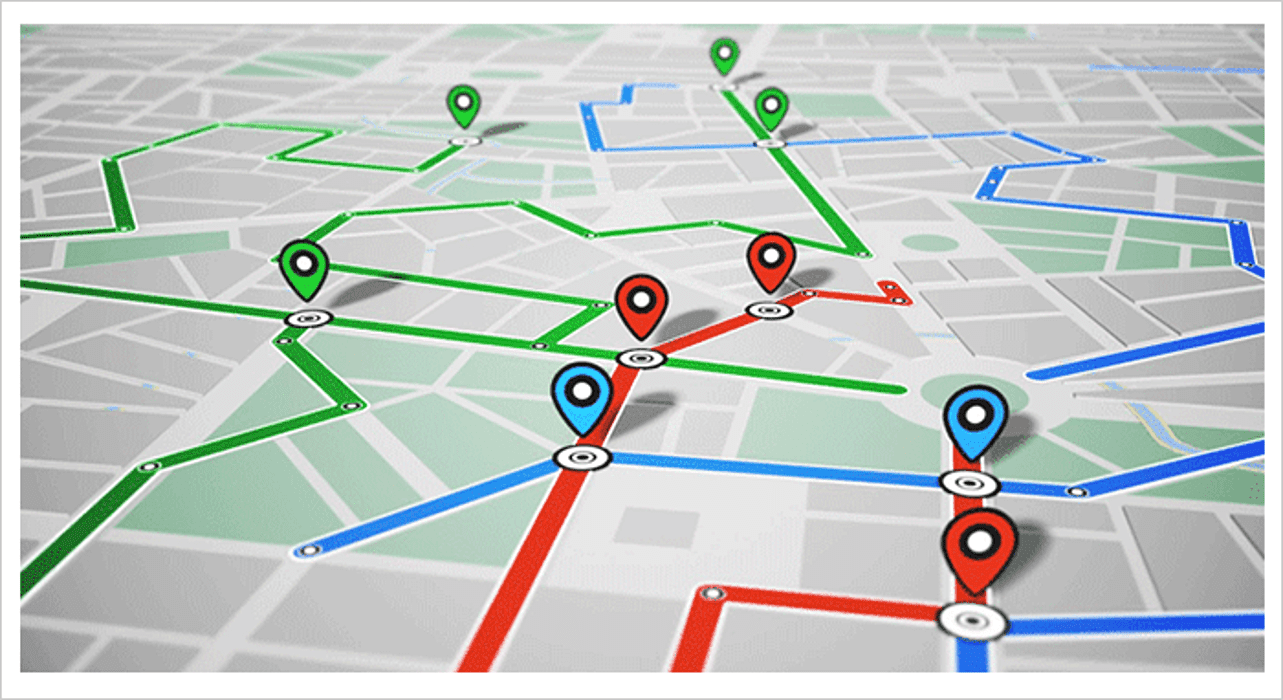
There are over 3.3 billion smartphone users worldwide, which is almost equivalent to half the world’s population. Approx 49 percent of the users are opening an app more than 11 times a day. Almost every type of app learns about your location. Facebook, Google, Apple, Amazon, Fandango, UberEats, Tinder, Pokemon Go, and many other apps get access to your phone’s location status. Although this shouldn’t drop a bombshell on your head as the location tracking app itself coaxes you to share your location. It’s a part of the services (like an unstated deal) where you have agreed to let the app access your whereabouts. Still, you may question how to trust an app as you may not feel confident in knowing that you are constantly on the app’s watch.
The New York Times chronicled a very famous article last year, where they took a case study of a woman and represented how location tracking in her smartphone kept records of daily routines, where she went, and how much time she spent in particular places. This reflects that technology despite coming a long way has exposed a lot about us to the globe.
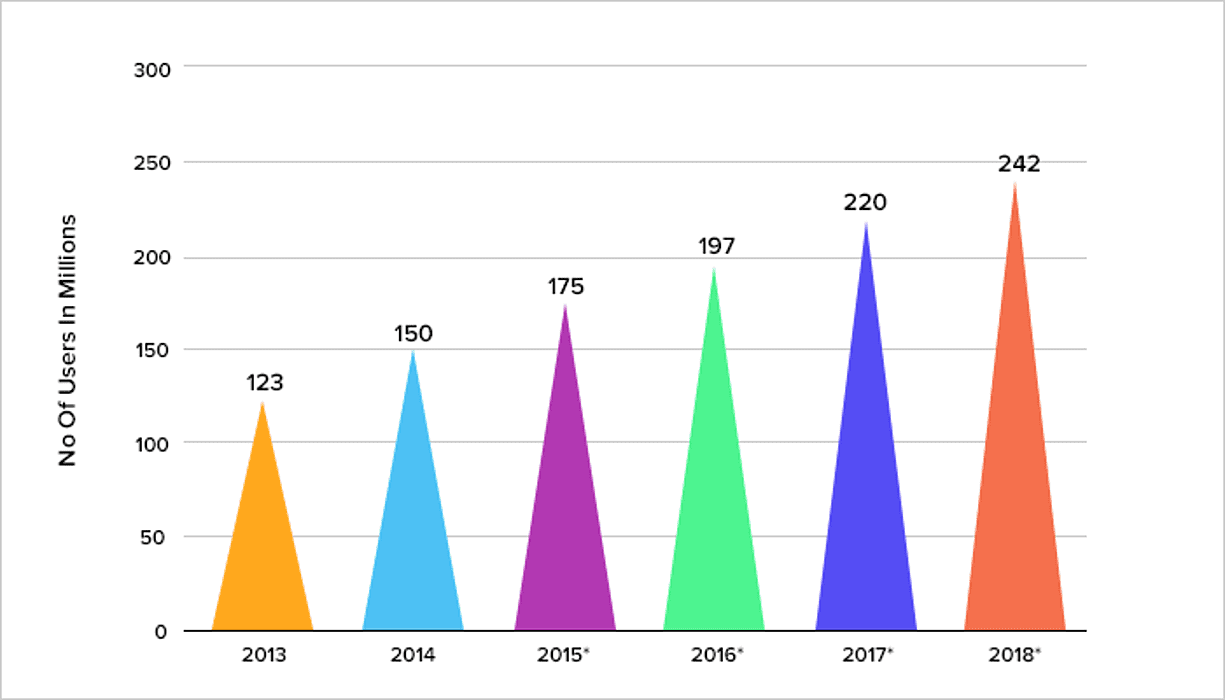
The image representing the number of location-based service users in the USA from 2013-28 (data in millions)
With increasing smartphones, there has been a mammoth increase in the number of location-based service users. Interestingly, since phones are getting more powerful and smarter year by year, you might not be fully mindful of the fact ‘companies do track my location 24x7’ as you rather are concerned with the advantages the technology provides which is also not a bad thing completely.
The statistical information below paints a clear picture of the mindset people have on the technology.
Location-Based Users Statistics
According to a survey conducted by the Manifest on location tracking feature to improve customer satisfaction, interesting results came into view. The following highlights some of the noticeable facts-
- Around 81 percent of smartphone users have the knowledge to adjust their phone’s location yet, do not realize that their efforts are futile in stopping location tracking.
- Users feel safer when their locations are tracked by apps as 57 percent are content with apps locating them compared to the 15 percent who don’t feel safe and don’t want to be tracked.
- When it comes to dating apps, the percentage of men (35) is more than twice that of women (16) when it comes to sharing their locations.
- Approx 46 percent of the people stopped using the app after sharing their location mistakenly. The percentage of those who kept using it despite the accidental sharing of location aggregates to 40 percent.
- 79 percent of the people have not shied away from using geotags in their social media postings.
- 52 percent of the users feel at risk using location-tracking apps.
- 31 percent demand complete privacy and do not place their trust in companies regarding their private information.
The survey was conducted among 727 Americans in the age groups of 18-24, 25-34, 35-44 and 45 and older.
Turn off Location Tracking- Does that Help?
Before coming to that, here’s an interesting fact to start this section. Did you know the information gathered by big app companies is usually managed by third-party apps? These third-party apps are hidden subsidiaries (of all those big names) that collect your data from smartphone apps.
Now coming back to the question, does disable location tracking all that helpful? With location tracking, apps want to personalize UX and use the data acquired for promotional purposes. Be it for Android or iOS these apps use GPS technology which helps users to connect to location-based services. Some examples include booking a cab via Uber, weather report of the place the user is currently in or finding eateries nearby.
There are users who don’t like to let their private life be social, as a result, they refrain from turning on their location. But app users figured out how Google and Apple still manage to track data despite disabling the location tracking feature. Additionally, if I talk about Android itself, the apps in Play Store share 90 percent of their data with Google which makes the tech giant’s knowledge base about you equivalent to that of a close friend of yours. But as a user, you can always clear out your previous location records and make a fresh start. In that way, it will seem like everything’s afresh.
Closing the Tracking Option for Android and iOS
In Google, if you don’t want the app to keep finding out where you are all the time, you need to disable location services from the App settings. About 81 percent of Americans know how to turn off location. There are more intrinsic ways to get away from location tracking technology. Like Google Maps users can manually delete the location markers which are already stockpiled on the phones. It’s like clearing your browser history.
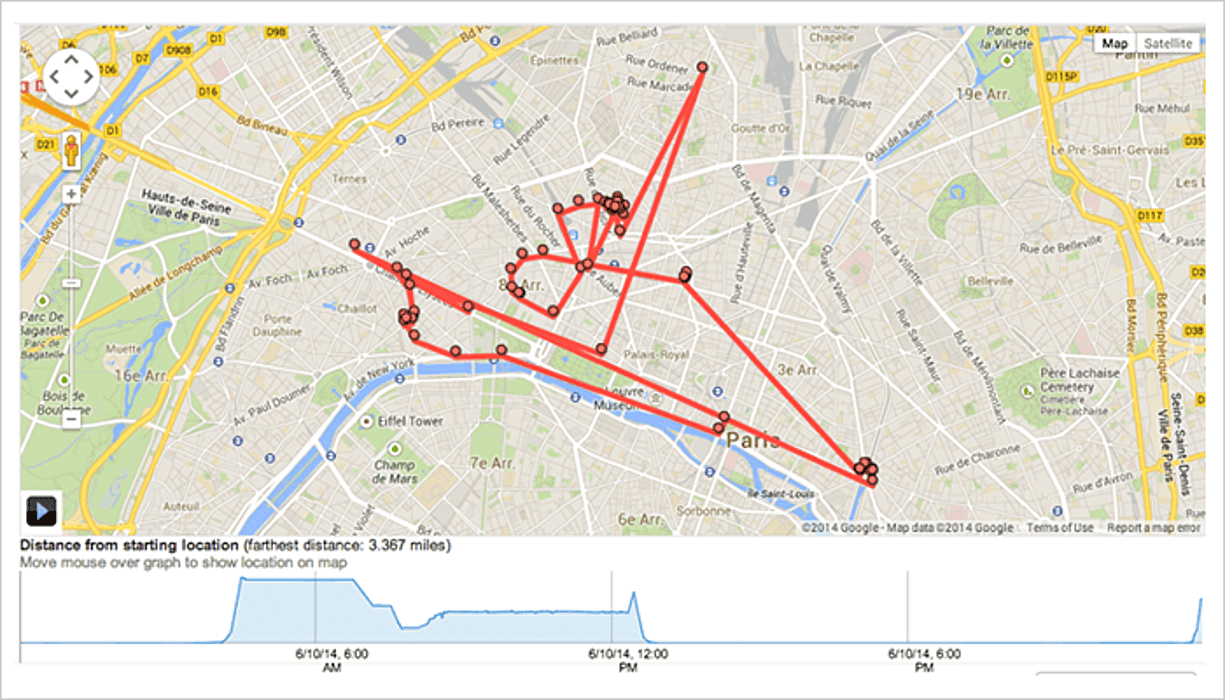
Despite all odds, Google does have access to your location even if you disable search tracking.
The case is somewhat different for iOS devices, though. They have this feature called ‘significant locations’ which tracks all the areas/places an iPhone user goes about and doles out recommendations based on the same. Apple doesn’t bother apps about your location more than it needs to be. But there are ways of doing it. In Apple, if you go to Settings and visit the Location Services option, you get choices for every single app viz. ‘While Using’ and ‘Always’. If you directly turn off Location Services, it shuts the location access for everything that includes both downloaded and system apps.
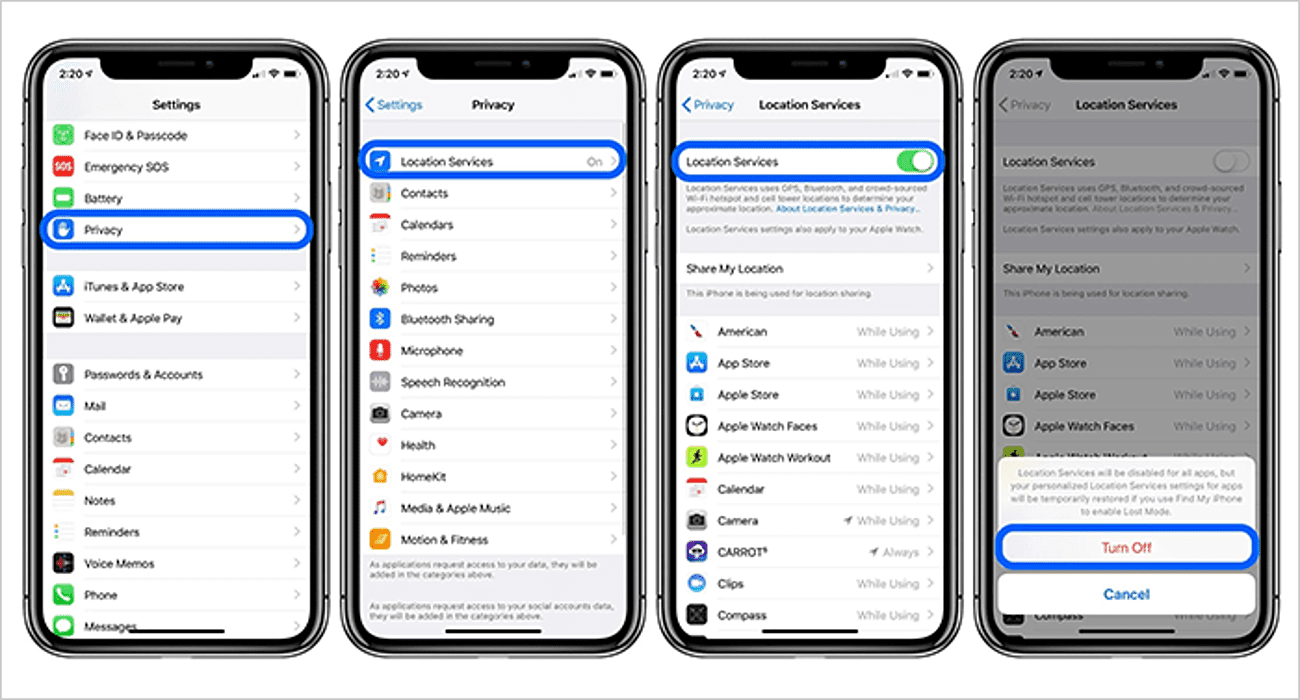
The bottom line is Google is more focussed on tracking devices as advertising is a major source of income for the brand. Apple, on the other hand, is comparatively lenient as it earns mostly by selling physical products.
Cell Phone Location Tracker- Why are People allowing Themselves to be Tracked?
Users who are unhinged by the fact that their locations are being recorded must’ve given importance to app benefits over privacy. But that’s one way of looking at it. A more optimistic POV would be that the app location also provides convenient means to reach a certain objective and safety. For a new Apple user who’s probably trying to find how to turn on location on iPhone may be trying to locate someplace or someone. When it comes to safety, especially for women smartphone users, location can become a boon than a bane. The following points are brief elaborations on how locations help you in day-to-day life.
Convenience- In Finding out Newer Places
People usually question should location services be on or off and that becomes very subjective. However, when we talk of convenience, it does become highly useful. Be it business/social events or discovering places to hang-out, locations are highly helpful. If you’re traveling to a new city, the technology will help you to reach all the important destinations with accurate details regarding the ‘stopping places’ along with necessary navigation details.
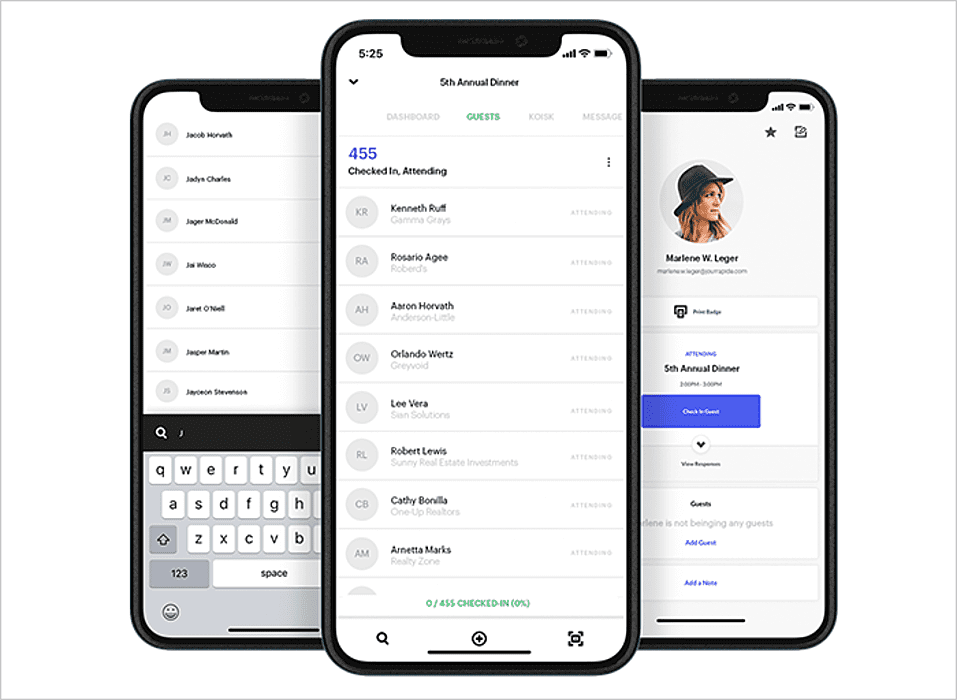
In addition to that, wherever you are going, you are also helping that place to earn more recognition with reviews, feedback, descriptions, etc. Also, you get suggestions and tailored ads conforming to your areas of visit which makes you have a better knowledge of the areas and their vicinities.
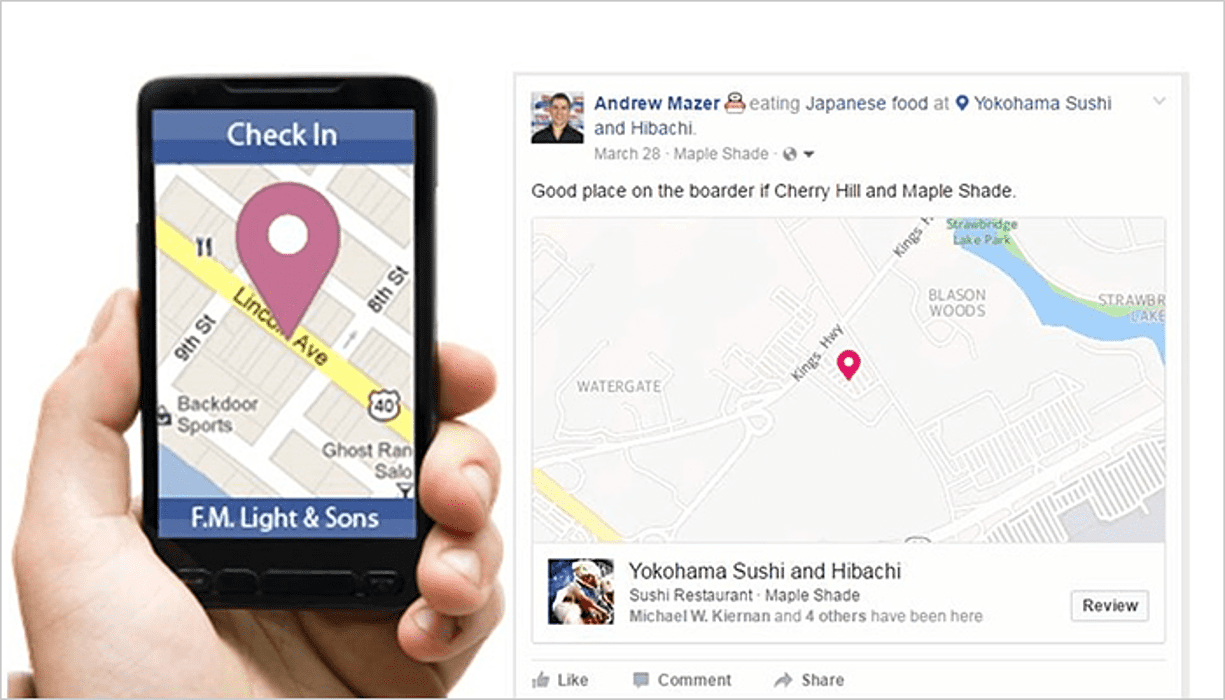
Safety- To Set your Location Priorities
There are times when you have to return late at your home, and if you’re returning by a cab, then you can share the ride details with your parents or kin who is at the destination. This facilitates communication and increases connectivity. And not just with one, you can share it with multiple contacts too. Now, if you reverse the case, like if a friend or loved one is traveling and shares with you his/her travel status, it lets you know about their current state and you also learn how to track people.
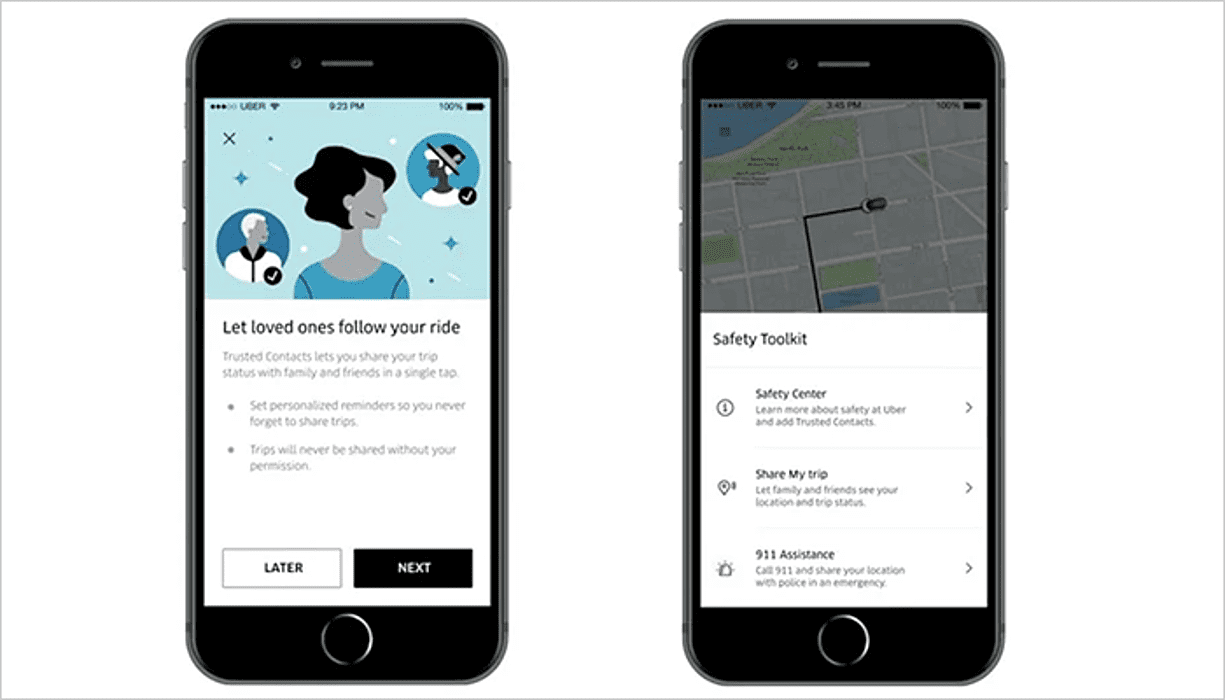
Guidance- For easy Navigation and the Best Location-Based Results
With urban planning and rapid industrialization, it becomes difficult for people to commute through the easiest routes. That’s why navigation-based services guide you to reach your destined stop with ease. You may have seen GPS navigations help you with journey alerting you about turns, similar ETA, traffic status, etc. with a very small margin of errors. Of course, one has to note that in smaller cities, location-based GPS services at times aren’t fully reliable and may lead someone to inaccurate roads, that’s why people disable search tracking in such situations. It can also lack details of important places in many areas. Nonetheless, this hasn’t stopped people from putting their faith in location-based services and seeking their help.
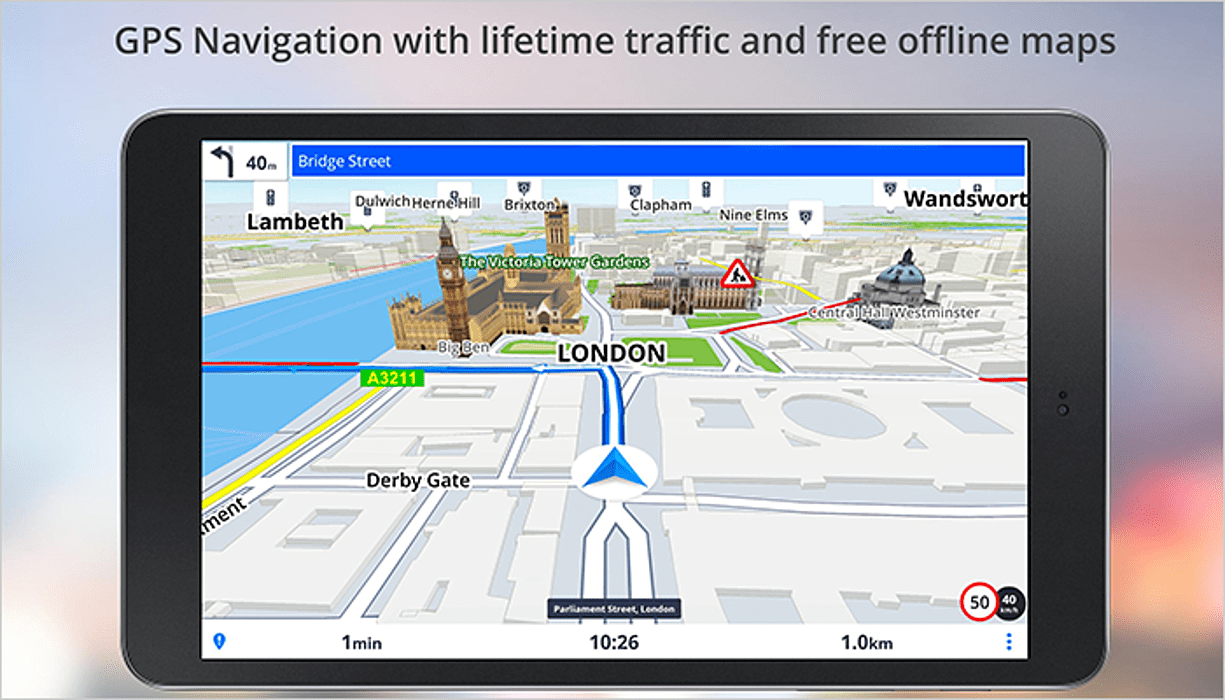
Time and Money Management- To Get Instant and Accurate Results
In continuation to the last points, ease of travel also includes spending the right amount of time and money. If you’re going to a particular place of visit with the help of maps you can determine the quickest route, how much time it will take through different modes of transport, and you can also find out the travel expenses. It’s hassle-free. Suppose you wish to dine out but aren’t aware of the best places nearby. Instead of randomly visiting a restaurant or asking from friends, you search it on your phone and get loaded with the best results in a jiffy. You can check out the distance, the reviews, the menus, the costs and lots of other interesting stuff. And with powerful AI tools that are revolutionizing the mobile industry, a gentle ‘OK Google’ or ‘Hey Alexa’ followed by the query will enhance your decision making qualities.
As this explained the benefits of using location tracking or location-based services, the next part explains how men and women perceive the technology and who finds more comfort.
Adam and Eve- Why Men Feel easier to use Location Tracking apps Than Women?
As per studies, it’s pretty comprehensive that it’s more comfortable for men to share their locations in comparison to women. According to the latest findings by National Sexual Violence Resource Center (NSVRC), every 1 out of 5 women are victims of sexual crimes in their lifetime vis-à-vis to men where every 1 out of 71 are victims.
Similar to location tracking apps like Happn, Tinder launched the location tracking feature called ‘Places’, which trims downs ‘matches’ to make your profile accessible to people who reside nearby. This made dating experiences safer, especially for a woman who can get to know strangers in places where she prefers to frequent.
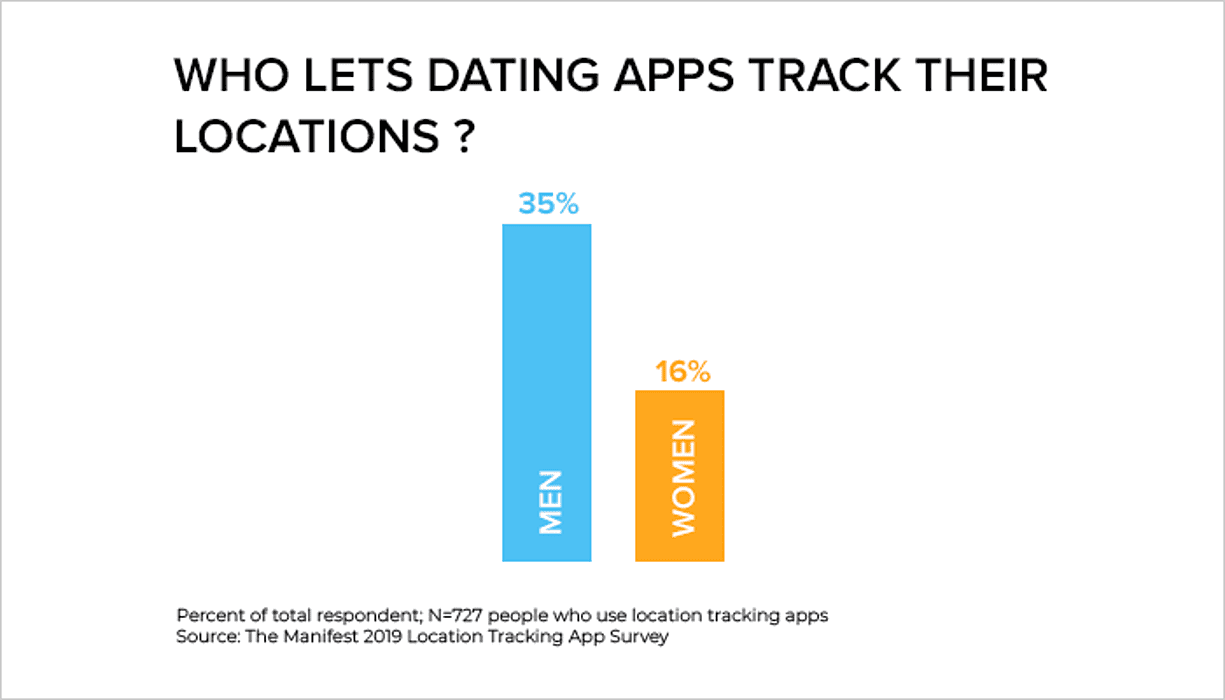
Credit- The manifest
If we talk in figures, 35 percent of men have no issues in sharing their location via dating apps. For women, the stats are less than half of that at 16 percent.
But how are people using location tracking in social media? Let’s find out.
Social Media Apps and People- How often are People are Using it?
You go to watch a film, and you put it up on Facebook, your Insta feed is filled with vacay pictures at amazing places, you post live tweets from a conference or summit. Isn’t it fun to let your friends and followers know the great activities you engage at times?
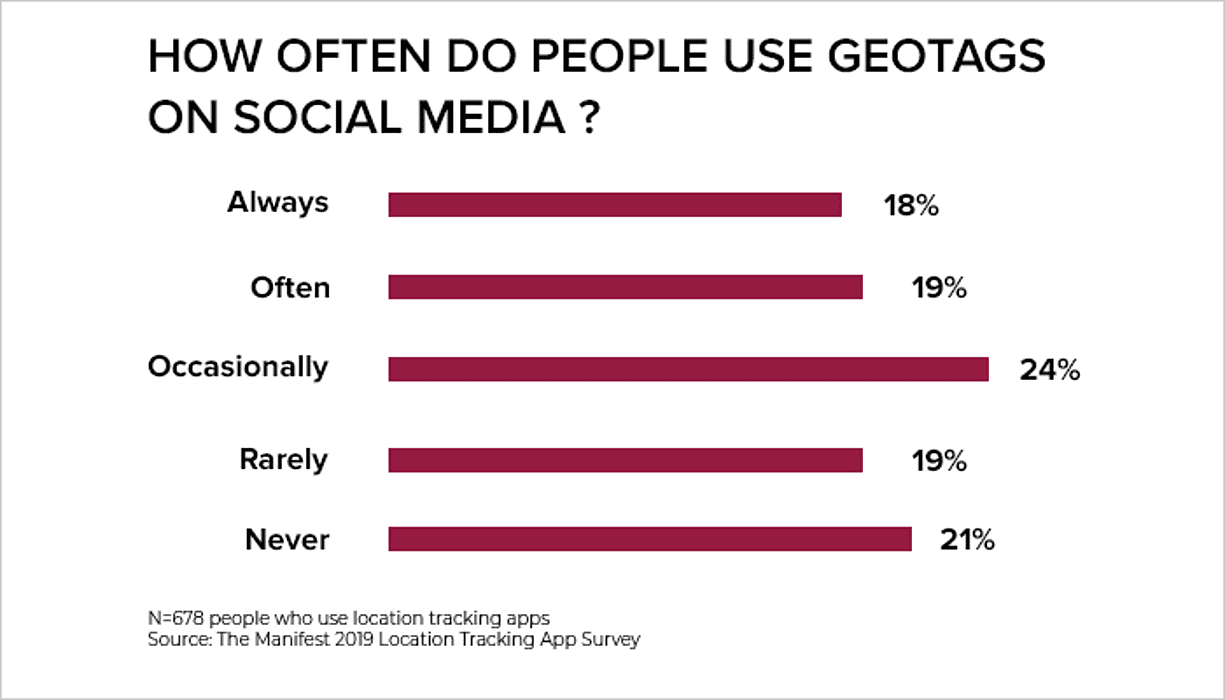
The above image represents 19 percent of the people who always use geotag wherever they visit, 24 percent seldom use it, and 21 percent never tag any place they go to. A 2019 survey reveals that 79 percent of social media users have used Geotags in their handles.
While it’s good to let your friends know where you are going, but tagging places every time can involve risk(s) as you may not know everyone who is on your list. The person will get to know when you are at your home or when you aren’t. But if it’s really important to you, you can set privacy levels for your posts to have restricted viewing. You get the option to make the post visible only to your ‘close friends’.
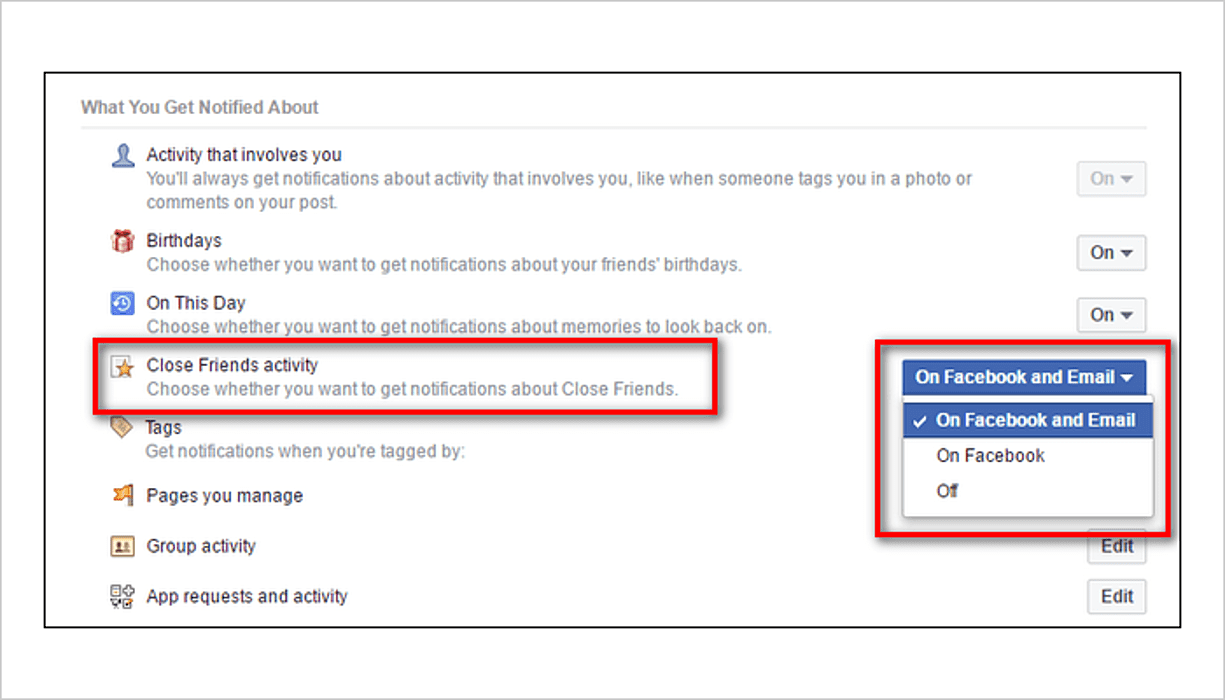
Location tagging is great for local businesses to boost traffic via social apps. Let’s take the example of Instagram. If you visit a place and while you’re about to post a photo, you get location suggestions below if your GPS is turned on. Even if you don’t get an option, and want to manually tag a place, you get a list of related options w.r.t to the area of visit.
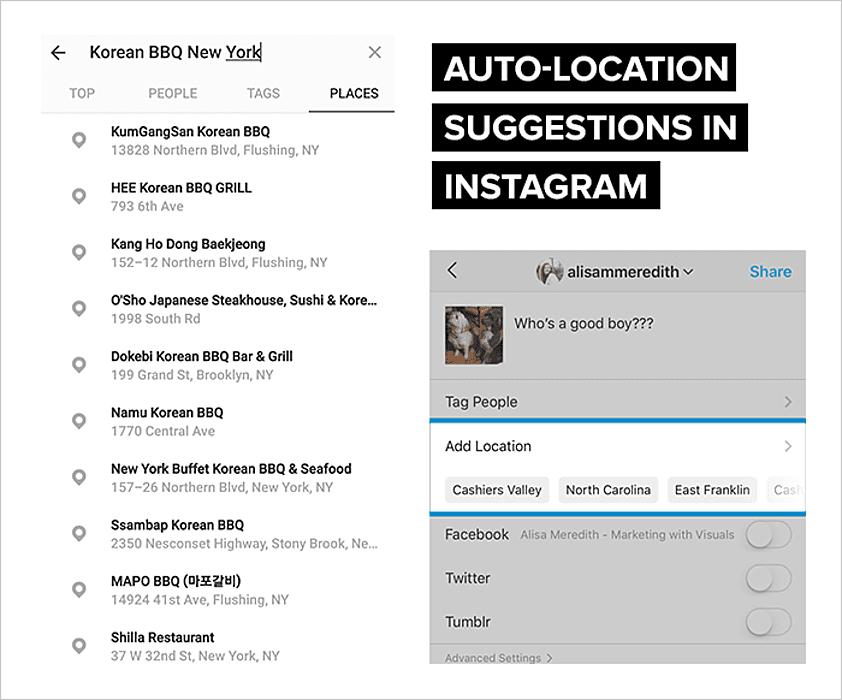
People who use geotagging frequently appear more in search results. For businesses, it’s an even greater thing as tagging locations ups the engagement game by a staggering 79 percent in comparison to those who do not use the feature. This is one amongst the many modern followed trends by business on IG for app promotion.
Privacy Concerns- How to Trust an app with Location Tracking Enabled?
Track a cell phone location online
While the above reflected how people use geotagging in social media and how the latter benefits from the feature, you mustn’t forget apps that have tracking locations enabled also have their pitfalls as well. Like, nowadays, it’s not a big deal for tech experts to track a cell phone location online. That’s why some people do have second thoughts about sharing locations via apps and consider that this may lead to data breaches and theft of privacy.
Hackers are always affronting to commit cybercrimes and get access to users’ locations which could put their fates at risk. There are even ways to do it. For example, if the app records the live location status of a person and doesn’t create a means to secure it, it has the potential to be hacked. Although not the foremost concern on matters of a user’s privacy, this still can promote felonies like aggressive stalking, robberies, home invasions, etc. That’s why an app developer has to be extremely cautious while enabling the feature.
Privacy in any form is a big issue in the present era. You must’ve read how both the Google and Facebook CEOs (Sundar Pichai and Mark Zuckerberg) had to testify against the US Congress last year for privacy issues and data breach.
Verdict- Can apps that Track Locations be Trusted?
If I look from a wider perspective, I have to give it to location tracking for the services it provides. It has made app usage easier and exciting. It does track my location, but at the same time, it makes the app easier and interactive for me to use. The technology can pose certain problems especially to women, as it can lead to problems, but in general terms, it can be considered safe. Take Herow by Connecthings for example. The location tracking app offers permission privacy with a two-layer opt-in approach. Thus, you control who can access your location.
Even if you do not want your location to be shared on apps and find ways on how to stop sharing location without them knowing, there will be certain apps like Google that can keep track of it despite valiant efforts. But Google, along with Facebook, Apple, and other big names have profound location-based features that you might enjoy rather than resist.
Be wary of hackers and try to use geotagging and other location-tracking services as smartly as you can.
Frequently Asked Questions
-
How to find someone’s location using their cell phone number?
While it’s not trivial for a commoner to track the exact location of a caller but if it’s an unknown number, you can search it via the Truecaller or the Whitepages app.
-
How can I track a family member’s mobile location?
-
Can someone spy on my phone without touching it?
-
How to use the phone tracker apps?
-
Should apps be allowed to track your location?





